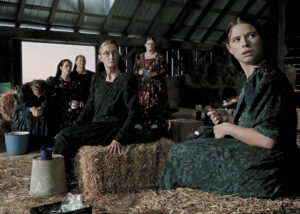Scripture credits King Hezekiah for reestablishing Passover. Apparently, the temple had been shut down and it had been a while since any regular worship routines had been practiced. So, good king Hezekiah decided to turn things around and get Passover back on the menu.
Except there was a bit of a problem: because it had been so long, everyone was rusty. There weren’t enough consecrated priests, so they had to delay the celebration until the priests were ready. In addition, many of the people weren’t ceremonially clean and hadn’t properly purified themselves. This was a group of people who were interested and willing and eager to worship, they wanted to celebrate Passover, but they weren’t doing everything right. The whole event was clumsy and wasn’t quite done by the book.
For any organized rule-loving person, this would have been painful to watch, even more painful to participate in. It reminds me of various church services that I have quietly struggled through over the years. Always well-meaning people, but the execution was a bit painful to witness, especially if you’ve known polished, professional and well-planned times of worship and have a degree in worship leadership.
Well, King Hezekiah isn’t naïve to these realities. I think he knows that there’s more at stake here than just getting bad reviews for a poorly run time of worship. The rules for consecrating oneself is serious business not taken lightly by God. So Hezekiah prays, May the LORD, who is good, pardon everyone who sets his heart on seeking God—the LORD, the God of his fathers—even if he is not clean according to the rules of the sanctuary (2 Chronicles 30:18-19). It turns out that was sufficient for God, for God hears and heals the people. Done. It’s all good.
I love this. The people weren’t doing it right. . . but they were trying. They were out of practice and things weren’t established enough for them to follow quite properly, but in the end those things were secondary. What was more important were the people’s hearts, their intent, their desire to worship. The details were just that, details. They could practice and get better and reestablish as they went along, but that didn’t stop them from worshiping that first day.
This inadequate but right-hearted yearning toward God reminds me of Thomas Merton’s most wonderful and reassuring “Prayer of Unknowing.” I return to it often and am so glad to have found a scripture passage that feels akin to it.
My Lord God,
I have no idea where I am going.
I do not see the road ahead of me.
I cannot know for certain where it will end.
Nor do I really know myself,
and the fact that I think I am following our will
does not mean that I am actually doing so.
But I believe that the desire to please you does in fact please you.
And I hope I have that desire in all that I am doing.
I hope that I will never do anything apart from that desire.
And I know that if I do this you will lead me by the right road,
though I may know nothing about it.
Therefore will I trust you always though
I may seem to be lost and in the shadow of death.
I will not fear, for you are ever with me,
and you will never leave me to face my perils alone.
“The Prayer of Unknowing” from Thoughts in Solitude by Thomas Merton, Copyright © 1956, 1958 by The Abbey of Our Lady of Gethsemani. Reprinted with permission of the Merton Legacy Trust.
Joshua Penfold (penfoldjoshua@gmail.com) finds such fumbling faithfulness fantastically freeing.
Read more Tales from the Unending Story:
Soil lover
Priests of what are not gods
Abandoning the Lord
Grasping God’s glory
A trickle of trust








Leave a Reply
You must be logged in to post a comment.